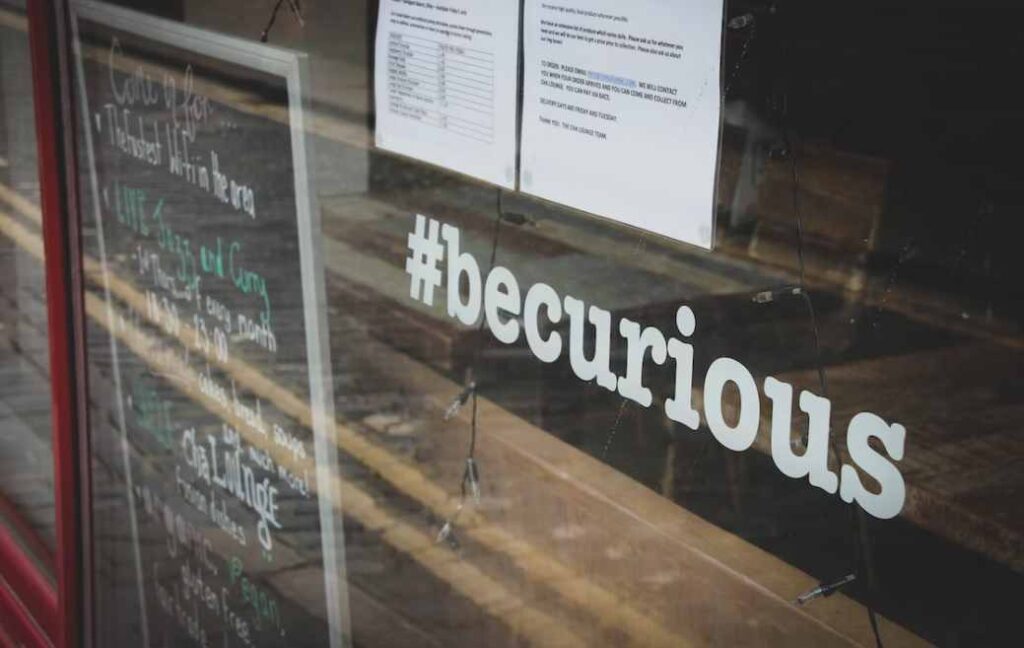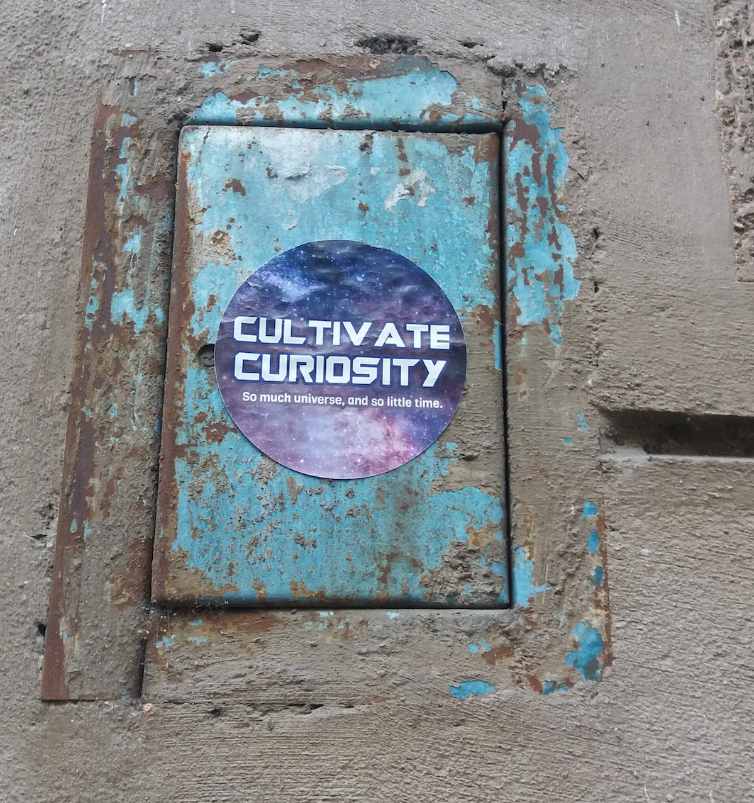1. Introduction: Embracing the Power of Critical Thinking
In today’s complex and rapidly changing world, critical thinking skills have become essential for success in both academics and the professional sphere. Being able to analyze information, evaluate arguments, and think logically is no longer just a valuable asset – it’s a necessity. The ability to think critically allows individuals to approach problems and challenges with a clear and objective mindset, enabling them to make well-informed decisions and solve complex issues. Whether you’re a student looking to enhance your academic performance or a professional seeking to sharpen your problem-solving abilities, this essential guide will provide you with the tools and strategies to develop and unlock your intellectual superpowers through the mastery of critical thinking skills.

2. The Importance of Developing Critical Thinking Skills
Critical thinking skills are essential in various aspects of life, including academics and the professional sphere. Developing these skills is crucial for several reasons:
1. Effective problem-solving:
Critical thinking helps individuals approach problems and challenges in a logical and systematic manner. It allows them to analyze information, evaluate different perspectives, and develop well-reasoned solutions. By honing their critical thinking skills, individuals can overcome obstacles more efficiently and come up with innovative solutions.
2. Decision-making:
The ability to make informed decisions is essential in both personal and professional life. Skills of Critical thinking enables individuals to evaluate available options, consider potential consequences, and make decisions based on evidence and logical reasoning. This ensures that decisions are well-thought-out and minimize risks and uncertainties.
3. Improved analytical skills:
Skill of Critical thinking involves analyzing and interpreting information, identifying patterns and trends, and making connections between different ideas or concepts. By developing critical thinking skills, individuals can enhance their analytical abilities, enabling them to gather and interpret data effectively.
4. Enhanced creativity:
Skills for Critical thinking encourages individuals to think outside the box and challenge conventional wisdom. By questioning assumptions and exploring different perspectives, individuals can develop creative and innovative solutions to problems. This skill is especially valuable in creative industries, where originality and fresh ideas are highly valued.
5. Effective communication:
Critical thinking skills are closely linked to effective communication. Individuals with strong critical thinking skills can articulate their thoughts and ideas clearly, present logical arguments, and effectively persuade others. Additionally, they are more likely to ask insightful questions, actively listen to others’ views, and engage in constructive discussions.
6. Lifelong learning:
Critical thinking is a lifelong skill that empowers individuals to continue learning and acquiring new knowledge. It encourages curiosity, intellectual curiosity, and a desire to seek out new information. By consistently practicing critical thinking, individuals can become more adaptable, open-minded, and better equipped to navigate the ever-changing world.
In summary, developing critical thinking skills is essential for success in various areas of life. It enables effective problem-solving, informed decision-making, improved analytical skills, enhanced creativity, effective communication, and promotes lifelong learning. By unlocking their intellectual superpowers through the mastery of critical thinking skills, individuals can thrive in an increasingly complex and dynamic world.

3. Defining Critical Thinking: What Is It and Why Do You Need It?
Critical thinking is a cognitive process that involves analyzing, synthesizing, and evaluating information in a logical and systematic manner. It goes beyond simply accepting or rejecting information at face value. Instead, it encourages individuals to question assumptions, challenge existing beliefs, and explore multiple perspectives before forming their own well-informed opinions.
But why do you need critical thinking skills? What makes them essential in today’s world?
1. Making Informed and Rational Decisions:
In an era of information overload, critical thinking enables you to navigate through the vast amount of data and make sensible decisions. By evaluating the rational decisions, reliability and validity of sources, considering different viewpoints, and weighing evidence, you can make informed choices that are based on logic and reason rather than emotion or bias.
2. Solving Complex Problems:
Critical thinking equips you with the ability to break down complex problems into smaller, more manageable parts. It enables you to analyze each component, identify patterns, and make connections. This systematic approach helps you develop effective strategies to solve problems and overcome obstacles, both in your personal and professional life.
3. Avoiding Cognitive Biases:
We are all susceptible to cognitive biases, which are irrational patterns of thinking that can cloud our judgment. Critical thinking skills help you recognize and overcome these biases, allowing you to approach situations with objectivity and impartiality. By minimizing the influence of biases, you can make more accurate assessments and decisions.
4. Enhancing Creativity and Innovation:
Critical thinking nurtures creativity by encouraging you to explore beyond conventional ideas and challenge established norms. By examining assumptions, considering alternative perspectives, and thinking outside the box, you can generate fresh and innovative solutions to problems. This ability to think creatively and adaptively is highly valued in today’s rapidly changing world.
5. Building Effective Communication Skills:
Critical thinking is closely linked to effective communication. It enables you to articulate your thoughts clearly, present logical arguments, and engage in constructive discussions. By actively listening to others, asking thoughtful questions, and considering different viewpoints, you can engage in meaningful and productive conversations.
6. Fostering Lifelong Learning:
Critical thinking is not a one-time skill but a lifelong process of continuous learning and improvement. It encourages intellectual curiosity, a thirst for knowledge, and a willingness to explore new ideas. With critical thinking skills, you become more adaptable, open-minded, and better equipped to navigate the complexities of an ever-evolving world.
In summary, critical thinking is a vital skill that enables you to analyze information, solve problems effectively, think creatively, communicate persuasively, and cultivate a lifelong love for learning. By developing your critical thinking skills, you can become a more discerning and empowered individual, capable of thriving in an increasingly complex and dynamic world.

4. Cultivating Curiosity: The First Step Towards Unlocking Your Intellectual Superpowers
Curiosity is the fuel that ignites the fire of critical thinking. It is the insatiable desire to explore, question, and seek knowledge, laying the foundation for the development of your intellectual superpowers. By cultivating curiosity, you embark on a journey of discovery and growth, unlocking the immense potential of your mind.
But how can you cultivate curiosity and harness its power to amplify your critical thinking skills? Here are a few effective strategies:
1. Embrace the Unknown:
Instead of shying away from unfamiliar subjects or concepts, embrace them with open arms. Curiosity thrives in the face of the unknown, propelling you towards exploration and learning. Seek out diverse topics, challenge yourself to understand complex ideas, and venture outside of your comfort zone. By embracing the unknown, you open yourself up to new possibilities and expand your intellectual horizons.
2. Ask Thought-Provoking Questions:
Curiosity is fueled by questions. Encourage yourself to ask thought-provoking questions that challenge assumptions and foster deeper understanding. Don’t settle for surface-level answers; delve deeper and explore the underlying principles and implications. Ask “why” and “how” to unravel the mysteries and intricacies of the world around you. Embrace the power of questioning as a gateway to intellectual growth.
3. Engage in Active Listening:
Curiosity thrives on active engagement with others. When engaging in conversations or lectures, practice active listening by truly immersing yourself in the ideas being shared. Seek to understand different perspectives, ask clarifying questions, and actively participate in discussions. By actively listening, you not only expand your knowledge but also foster intellectual connections and open pathways to new insights.
4. Embrace a Growth Mindset:
Adopt a growth mindset that embraces challenges and sees failures as opportunities for learning. Cultivate a belief in your ability to develop and improve your intellectual capacities through effort and perseverance. Embracing a growth mindset nurtures curiosity as it encourages you to see setbacks as stepping stones towards growth and mastery. Embrace challenges as opportunities to cultivate your curiosity and expand your critical thinking abilities.
5. Explore Multidisciplinary Learning:
Break free from the confinement of a single discipline and explore the intersections of different fields. Multidisciplinary learning opens up new avenues for curiosity, as it allows you to draw connections between seemingly unrelated subjects. Seek out diverse sources of knowledge, read widely, and engage with ideas from various disciplines. By embracing the richness of multidisciplinary learning, you feed your curiosity and deepen your understanding of the world.
6. Never Stop Questioning:
Curiosity is a lifelong journey. Cultivate a mindset of continuous questioning and never stop seeking answers. Embrace intellectual humility by acknowledging that there is always more to learn and discover. Approach new information with an open and inquisitive mind, willing to challenge your existing beliefs and embrace new perspectives. By nurturing a mindset of perpetual curiosity, you keep your intellectual superpowers sharp and ready for any challenge.
In conclusion, cultivating curiosity is the first step towards unlocking your intellectual superpowers. By embracing the unknown, asking thought-provoking questions, engaging in active listening, embracing a growth mindset, exploring multidisciplinary learning, and never stopping questioning, you ignite the flame of curiosity within you. As your curiosity grows, so does your capacity for critical thinking, paving the way for endless possibilities and transformative intellectual growth.

5. Analyzing Assumptions and Recognizing Bias: Sharpening Your Critical Thinking Edge
Analyzing assumptions and recognizing bias are crucial aspects of developing strong critical thinking skills. In this section, we will explore how to analyze assumptions and identify bias, equipping you with the tools to sharpen your critical thinking edge.
1. Identifying Assumptions:
Assumptions are underlying beliefs or ideas that we often take for granted without consciously thinking about them. They shape our perspectives and influence the way we interpret information. To analyze assumptions effectively, consider the following steps:
a. Identify implicit assumptions:
Implicit assumptions are those that are not explicitly stated but are embedded within a statement or argument. Look for clues such as words or phrases that suggest a particular belief or perspective.
b. Challenge assumptions:
Once you have identified implicit assumptions, critically evaluate their validity. Ask yourself: Are these assumptions supported by evidence? Are there alternative assumptions that could be equally plausible? By questioning assumptions, you open yourself up to different perspectives and enhance your critical thinking skills.
2. Recognizing Bias:
Bias refers to the favoring of one particular viewpoint over others, often leading to a distorted or unfair representation of information. To recognize bias, consider the following strategies:
a. Identify the source:
Understanding the source of information is essential in recognizing bias. Consider who produced the information, their motivations, and any potential conflicts of interest. Recognize that bias can exist in various forms, including political, cultural, or personal biases.
b. Evaluate language and tone:
Pay attention to the language and tone used in the information being presented. Look for exaggerated or emotionally charged language that may indicate bias. Consider whether the information is presented in a balanced and objective manner or if there is a clear slant towards a particular viewpoint.
c. Seek diverse perspectives:
Expose yourself to a wide range of perspectives to counteract bias. Engage with sources that present differing viewpoints and challenge your own beliefs. This practice promotes intellectual growth and enhances your ability to recognize bias.
3. Critical Analysis:
To sharpen your critical thinking edge, it is important to engage in critical analysis when evaluating assumptions and bias. Consider the following steps:
a. Gather evidence:
When analyzing assumptions or bias, collect relevant evidence or data to support or refute the claims being made. Rely on credible sources and empirical evidence whenever possible.
b. Examine counterarguments:
Explore opposing viewpoints and consider alternative explanations or interpretations. By exposing yourself to different perspectives, you can develop a more comprehensive understanding of the topic at hand.
c. Evaluate logical consistency:
Assess the logical consistency of the information. Look for logical fallacies or inconsistencies in reasoning that may undermine the validity of the argument. Logical consistency is a key component of critical thinking.
d. Reflect on personal biases:
Recognize and reflect on your own biases. Self-awareness of your own preconceived notions and assumptions is essential for unbiased critical thinking. Challenge your own beliefs and be open to revising them in light of new evidence or perspectives.
By analyzing assumptions and recognizing bias, you can sharpen your critical thinking edge. These skills enable you to evaluate information more objectively and make well-informed judgments. Embrace the practice of questioning assumptions, seeking diverse perspectives, and engaging in critical analysis to unlock your intellectual superpowers and navigate an increasingly complex world.

6. Evaluating Arguments and Evidence: Building a Foundation of Intellectual Rigor
Evaluating arguments and evidence is a fundamental aspect of developing strong critical thinking skills. In this section, we will explore the importance of evaluating arguments and evidence, providing you with the tools to build a foundation of intellectual rigor.
1. Understanding Arguments:
An argument is a set of premises that support a conclusion. When evaluating arguments, it is crucial to consider the following aspects:
a. Identify the main claim:
Determine the central claim or conclusion of the argument. This will help you understand the purpose and direction of the argument.
b. Assess the strength of premises:
Examine the supporting reasons or evidence provided in the argument. Evaluate the credibility and relevance of the premises. Are they well-supported and logically connected to the main claim?
c. Analyze the reasoning:
Evaluate the logical structure of the argument. Look for any logical fallacies or flaws in reasoning. Determine if the argument follows a sound and valid logical form.
2. Analyzing Evidence:
Evidence serves as the foundation for arguments. When analyzing evidence, consider the following strategies:
a. Evaluate the credibility of the source:
Assess the credibility and expertise of the source providing the evidence. Consider factors such as qualifications, reputation, and potential biases.
b. Assess the quality of the evidence:
Determine the reliability and validity of the evidence. Look for empirical data, peer-reviewed research, or systematic observations that support the claims being made.
c. Consider counter-evidence:
Engage with alternative evidence or viewpoints that challenge the claims being presented. Assess whether the evidence presented provides a comprehensive and balanced perspective.
3. Applying Critical Thinking Standards:
To build a foundation of intellectual rigor, it is essential to apply critical thinking standards when evaluating arguments and evidence. Consider the following standards:
a. Clarity and precision:
Ensure that arguments and evidence are presented clearly and precisely. Ambiguity or vagueness can weaken the strength of the argument.
b. Relevance and sufficiency:
Assess the relevance and sufficiency of the evidence in supporting the main claim. Determine if the evidence adequately addresses the issue at hand.
c. Consistency and coherence:
Evaluate the consistency and coherence of the argument. Look for logical consistency and avoid contradictions or inconsistencies in reasoning.
d. Fairness and objectivity:
Strive to evaluate arguments and evidence impartially, without personal biases or prejudices. Seek to consider diverse perspectives and avoid favoring one viewpoint over others.
By evaluating arguments and evidence, you can build a foundation of intellectual rigor. These skills enable you to critically assess the validity and strength of arguments, as well as the credibility and reliability of evidence. Embrace the practice of analyzing arguments, engaging with evidence, and applying critical thinking standards to enhance your ability to make well-founded judgments and navigate complex intellectual landscapes.

7. Embracing Nuance and Complexity: Navigating the Grey Areas of Critical Thinking
Critical thinking is a multifaceted skill that requires the ability to navigate the grey areas of complex issues. In this section, we will explore the importance of embracing nuance and complexity in developing strong critical thinking skills.
1. Recognizing the Complexity of Issues:
Many real-world issues are not black and white; they exist in shades of grey. Embracing nuance means acknowledging that there are often multiple perspectives, factors, and variables that contribute to a complex issue. By recognizing the inherent complexity, you can approach the issue with a more open and curious mindset.
2. Seeking Multiple Perspectives:
To navigate the grey areas of critical thinking, it is essential to seek out and consider multiple perspectives. This involves actively engaging with viewpoints that may challenge your own beliefs or preconceived notions. By considering diverse perspectives, you can gain a more comprehensive understanding of the issue and avoid falling into the trap of confirmation bias.
3. Evaluating Ambiguity and Uncertainty:
In the realm of critical thinking, ambiguity and uncertainty are common. Embracing these aspects requires a willingness to question assumptions, explore contradictions, and tolerate a degree of uncertainty. Rather than seeking simple, definitive answers, focus on exploring the nuances and uncertainties that exist within the issue at hand.
4. Practicing Empathy and Empathy:
Developing strong critical thinking skills involves the ability to empathize with others and understand their unique perspectives. By putting yourself in someone else’s shoes, you can gain insight into their reasoning and motivations, even if you ultimately disagree with their viewpoint. Empathy and empathy allow you to approach complex issues with compassion and understanding.
5. Considering Context and Consequences:
Critical thinking requires the ability to consider the broader context and potential consequences of different viewpoints and actions. By examining the larger picture, you can evaluate the long-term implications of various decisions and perspectives. This nuanced understanding of context helps you make more informed and responsible judgments.
6. Embracing Cognitive Flexibility:
Navigating the grey areas of critical thinking requires cognitive flexibility—the ability to adapt your thinking and approach in response to new information or changing circumstances. This includes being open to revising your own beliefs and perspectives based on new evidence or insights. Embracing cognitive flexibility allows you to navigate complex issues with a more agile and adaptive mindset.
By embracing nuance and complexity in your critical thinking, you can navigate the grey areas of complex issues more effectively. Recognizing the inherent complexity, seeking multiple perspectives, evaluating ambiguity and uncertainty, practicing empathy and empathy, considering context and consequences, and embracing cognitive flexibility are all essential skills for developing well-rounded critical thinking abilities. Embrace the challenge of navigating the grey areas, and you will enhance your ability to analyze, evaluate, and make informed decisions in a complex and ever-changing world.

8. Problem Solving and Decision Making: Harnessing the Power of Analytical Thinking
Problem solving and decision making are fundamental skills in critical thinking that allow individuals to analyze complex situations, identify potential solutions, and make informed choices. In this section, we will explore the importance of analytical thinking in problem solving and decision making.
1. Defining the Problem:
The first step in problem solving is clearly defining the problem at hand. This requires a thorough understanding of the situation, its challenges, and its desired outcomes. Analytical thinking helps break down the problem into its key components, allowing for a more systematic and effective approach to finding a solution.
2. Gathering and Analyzing Information:
Analytical thinking involves gathering and analyzing relevant data and information to gain insights into the problem. This can include conducting research, collecting data, and examining previous experiences or case studies. By systematically analyzing the information, individuals can identify patterns, trends, and potential relationships that can inform their problem-solving process.
3. Generating Potential Solutions:
Once the problem is defined and information is gathered, analytical thinking helps in generating a range of potential solutions. Analytical thinkers can consider multiple perspectives, evaluate the pros and cons of different options, and think critically about the feasibility and effectiveness of each solution. This allows for a more comprehensive exploration of possibilities and increases the likelihood of finding the most suitable solution.
4. Evaluating and Selecting Solutions:
Analytical thinking plays a crucial role in evaluating and selecting the most viable solution from the alternatives generated. This requires weighing the advantages and disadvantages of each option against the desired outcomes and considering any potential risks or constraints. By applying analytical thinking, individuals can make informed decisions that are based on logic and evidence rather than personal biases or preferences.
5. Implementing the Chosen Solution:
Once a solution is selected, analytical thinking helps in developing an action plan for implementation. This involves breaking down the solution into smaller, manageable steps, determining the necessary resources and timelines, and considering any potential obstacles or challenges. By applying analytical thinking to the implementation process, individuals can anticipate and address potential issues, ensuring a smoother and more effective execution of the chosen solution.
6. Evaluating the Outcome:
Analytical thinking also extends to evaluating the outcome of the problem-solving process. By systematically monitoring and assessing the results, individuals can determine the effectiveness of the chosen solution and identify any areas for improvement. This feedback loop allows for continuous learning and refinement of problem-solving and decision-making skills.
Harnessing the power of analytical thinking in problem solving and decision making enhances individuals’ ability to tackle complex challenges and make informed choices. By defining the problem, gathering and analyzing information, generating potential solutions, evaluating and selecting the best option, implementing the chosen solution, and evaluating the outcome, individuals can approach problem-solving and decision-making processes with a logical and analytical mindset. Develop your analytical thinking skills, and you will become a more effective problem solver and decision maker in both personal and professional contexts.

9. Effective Communication: Conveying Your Thoughts with Clarity and Precision
Effective communication is a vital skill in both personal and professional settings. It involves conveying your thoughts and ideas with clarity and precision to ensure that your message is understood by the intended audience. In this section, we will explore the importance of effective communication and provide tips on how to improve your communication skills.
1. Clear and Concise Expression:
One of the key aspects of effective communication is expressing your thoughts in a clear and concise manner. Avoid using jargon or technical terms that may be unfamiliar to your audience. Instead, use simple and straightforward language that anyone can understand. This will help ensure that your message is received and comprehended by all.
2. Active Listening:
Effective communication is not just about speaking; it also involves active listening. Pay attention to the speaker, maintain eye contact, and show genuine interest in what they have to say. This will not only help you understand their message better but also demonstrate respect and empathy.
3. Non-Verbal Communication:
Non-verbal cues, such as body language and facial expressions, play a significant role in effective communication. Be mindful of your own non-verbal signals, and also pay attention to the non-verbal cues of the person you are communicating with. This will help you gauge their level of understanding, engagement, and interest.
4. Empathy and Emotional Intelligence:
To communicate effectively, it is essential to consider the emotions and perspectives of others. Practice empathy by putting yourself in their shoes and trying to understand their thoughts, feelings, and motivations. This will enable you to tailor your message accordingly and ensure that it resonates with your audience.
5. Use of Visual Aids:
Visual aids, such as slides, charts, or diagrams, can enhance your communication by providing visual representations of complex information. Use them strategically to support your message and help your audience grasp the key points more easily.
6. Adaptability:
Effective communication requires adapting your style and approach based on the preferences and needs of your audience. Consider their background, knowledge level, and communication style, and adjust your message accordingly. This will help ensure that your communication is tailored to their specific requirements.
7. Feedback and Clarification:
To ensure that your message is understood, encourage feedback and ask for clarification if needed. This will help identify any areas of confusion or misunderstanding and allow you to address them promptly. Be open to questions and provide clear explanations to ensure that your communication is precise and unambiguous.
8. Practice and Continuous Improvement:
Effective communication is a skill that can be honed through practice and continuous improvement. Take every opportunity to communicate, whether it is in professional meetings, presentations, or personal conversations. Solicit feedback from others and reflect on your communication style to identify areas for growth and development.
By focusing on clear and concise expression, active listening, non-verbal communication, empathy, use of visual aids, adaptability, feedback and clarification, and continuous improvement, you can enhance your communication skills and become a more effective communicator. Remember, effective communication not only helps convey your thoughts and ideas, but also builds stronger relationships, resolves conflicts, and fosters understanding in various aspects of your life.

10. Seeking Alternative Perspectives: Expanding Your Intellectual Horizons
Seeking alternative perspectives is a fundamental aspect of developing critical thinking skills. It involves actively seeking out and considering different viewpoints, ideas, and opinions to broaden your intellectual horizons. By expanding your perspectives, you gain a deeper understanding of complex issues, challenge your own beliefs, and cultivate a more well-rounded and informed mindset. In this section, we will explore the importance of seeking alternative perspectives and provide strategies for expanding your intellectual horizons.
1. Embrace Diversity of Thought:
To expand your intellectual horizons, it is crucial to embrace diversity of thought. This means being open to engaging with ideas that may differ from your own, even if they initially seem unfamiliar or challenging. Recognize that diverse perspectives can offer valuable insights and contribute to a more comprehensive understanding of complex issues.
2. Engage in Active Listening and Dialogue:
Actively listening to others and engaging in dialogue is essential for seeking alternative perspectives. When engaging in discussions or debates, strive to listen attentively and respectfully to differing viewpoints. This allows you to consider alternative arguments and perspectives, fostering intellectual growth and facilitating the exchange of ideas.
3. Read Widely and Diversely:
Reading widely and diversely is another effective way to expose yourself to alternative perspectives. Seek out books, articles, and other written materials from various authors, disciplines, and cultural backgrounds. By reading diverse texts, you can gain insights into different worldviews and broaden your understanding of complex issues.
4. Engage with Different Communities and Networks:
Actively engaging with different communities and networks can expose you to a variety of perspectives and ideas. Attend conferences, workshops, or seminars that focus on topics outside your usual areas of interest. Participate in online forums or join relevant clubs or organizations that provide opportunities for intellectual exchange and exposure to alternative perspectives.
5. Challenge Confirmation Bias:
Confirmation bias is the tendency to interpret information in a way that confirms one’s preexisting beliefs or opinions. To expand your intellectual horizons, it is important to challenge confirmation bias and actively seek out information that may contradict your own viewpoints. Engage with sources that present differing opinions, and critically evaluate their arguments to foster a more nuanced understanding.
6. Cultivate Empathy and Respect:
Seeking alternative perspectives requires cultivating empathy and respect for others. Approach discussions and debates with openness and a willingness to understand different viewpoints. Show respect for the experiences and backgrounds of others, even if you disagree with their opinions. This fosters an environment conducive to intellectual exchange and encourages others to share their perspectives.
7. Reflect and Self-Examine:
Regularly reflect on your own beliefs and assumptions. Consider the factors that have shaped your perspectives and question whether they are based on evidence and rational thinking. Engage in self-examination to identify any biases or limitations in your thinking, and actively work towards overcoming them.
8. Engage in Socratic Questioning:
Socratic questioning is a method of inquiry that encourages critical thinking by asking probing questions. Engage in Socratic questioning with yourself and others to explore different perspectives, challenge assumptions, and stimulate intellectual curiosity. This helps uncover underlying assumptions, evaluate arguments, and foster a deeper understanding of complex issues.
By actively seeking alternative perspectives, you can expand your intellectual horizons, enhance your critical thinking skills, and cultivate a more well-rounded worldview. Embrace diversity of thought, engage in active listening and dialogue, read widely and diversely, engage with different communities and networks, challenge confirmation bias, cultivate empathy and respect, reflect and self-examine, and engage in Socratic questioning. Through these practices, you can unlock your intellectual superpowers and develop a more comprehensive understanding of the world around you.
Some Case Studies About critical thinking skills
Here are some case studies that demonstrate the importance of critical thinking skills:
- A study on critical thinking skills and problem-based learning in athletic training: This case study explores the use of problem-based learning to develop critical thinking skills in athletic training students. The study found that students who participated in problem-based learning activities demonstrated higher levels of critical thinking skills than those who did not.
- Critical Thinking – With Case Study: This case study provides examples of how critical thinking skills can be developed through asking and answering questions systematically. The case study includes a model for generating critical thinking, which involves asking questions such as “what, who, where, when, how, and why” and following up with “what if, what next, and so what.”
- Using Case Studies to Improve the Critical Thinking Skills of Undergraduate Conservation Biology Students: This study explores the use of case studies to improve critical thinking skills in undergraduate conservation biology students. The study found that students who participated in case study activities demonstrated higher levels of critical thinking skills than those who did not.
- Improving Metacognition: A Case Study of a Business Critical Thinking Course: This case study explores the use of critical thinking exercises to improve metacognition in a business critical thinking course. The study found that students who participated in critical thinking exercises demonstrated higher levels of metacognitive awareness and critical thinking skills than those who did not.
- A Case for Critical Thinking: This case study argues for the importance of critical thinking skills in today’s business world. The study highlights the need for companies to recognize and foster critical thinking skills in their employees, and provides examples of how critical thinking can be used to solve real-world problems.
What are critical thinking skills?
Critical thinking skills are the ability to objectively analyze information and draw a conclusion. It involves impartially evaluating the facts related to a matter and coming up with a logical and reasonable conclusion.Why are critical thinking skills important?
Critical thinking skills are important because they allow you to analyze information and make an objective judgment. Being able to properly analyze a situation and come up with a logical and reasonable conclusion is highly valued by employers.What are the six main types of critical thinking skills?
The six main types of critical thinking skills are analytical thinking, good communication, creative thinking, open-mindedness, ability to solve problems, and ability to make decisions.How can I improve my critical thinking skills?
You can improve your critical thinking skills by identifying the problem, gathering information, analyzing the information, evaluating the information, considering multiple perspectives, and making a decision. Additionally, you can practice open-mindedness, creative thinking, and good communication.How can I showcase my critical thinking skills during a job interview?
You can showcase your critical thinking skills during a job interview by using examples that showcase the analytic thought process behind your decision making. You can also demonstrate that you use your critical thinking skills and practice positive habits of mind.Are critical thinking skills subject-specific?
No, critical thinking skills are not subject-specific. They are applicable across a wide range of positions and industries. Critical thinking is the ability to parse through information, data, statistics, and other details in order to identify a satisfactory solution.How is critical thinking skills used in everyday life?
Critical thinking is a valuable skill that can be used in everyday life to help analyze information and make informed decisions. Here are some ways that critical thinking can be applied in daily life:
1. Analyzing information to make an objective judgment
2. Deciding what's true and what to do
3. Evaluating online information
4. Questioning information and data
5. Examining the implications and consequences of a belief or action
By using critical thinking skills, individuals can better navigate everyday problems and make more informed decisions.

